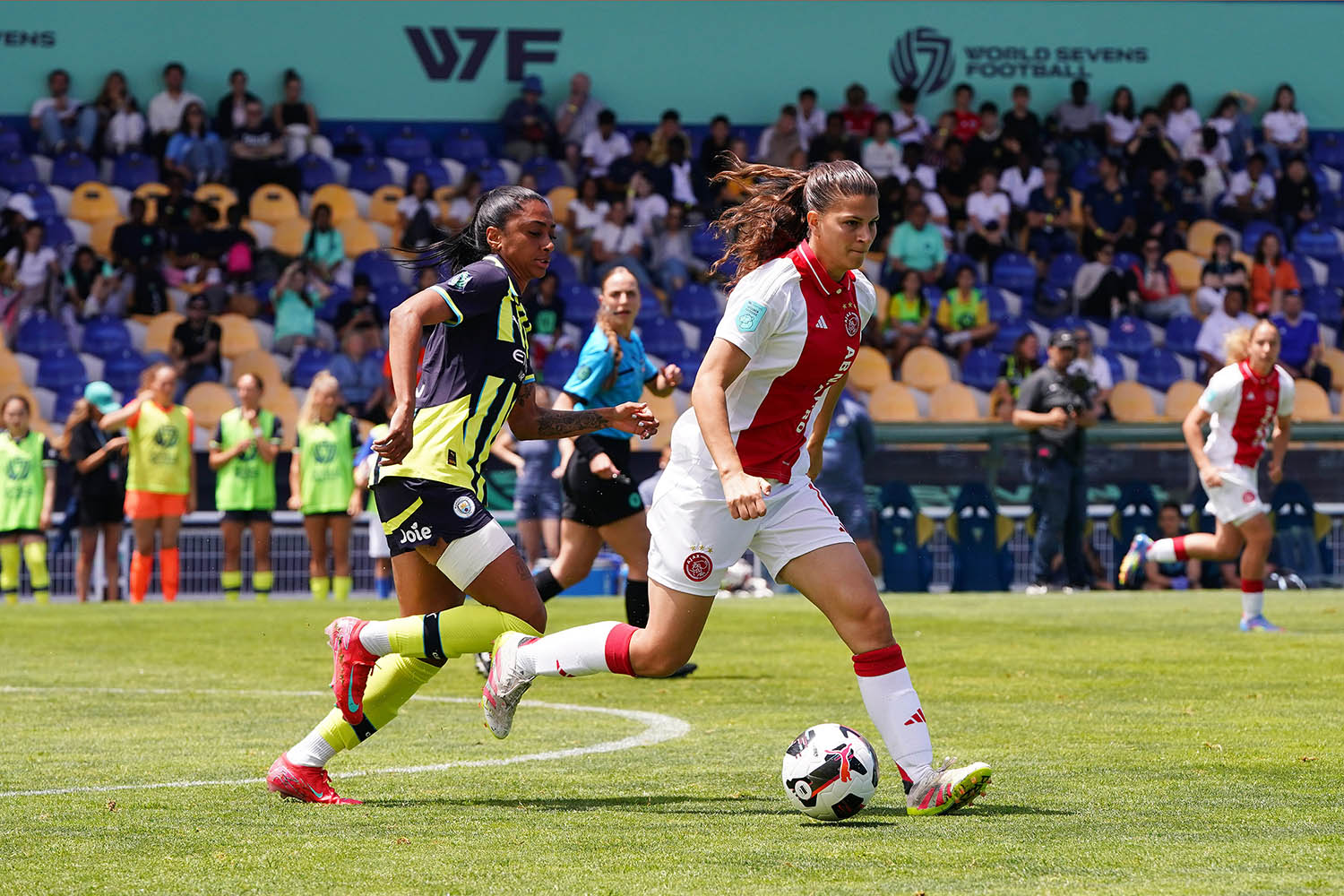The oft repeated assertion in women’s football is that it should be brave enough to follow a different path from the men’s game. That is the rationale behind World Sevens Football, a new tournament that occupied the three days leading up to yesterday’s Champions League final.
The seven-a-side competition was contested by eight teams in Estoril with 15-minute halves, no offsides and sudden-death penalty shootouts. Held about 30 minutes outside of Lisbon where the main event was, the question is: was this actually the main event?
With $100 million (£72 million) of investment secured over the next five years, eventual winners Bayern Munich went home with $2.5m – almost $1m more than the Champions League winners will earn.
Short-form football challenger brands are now everywhere. Spurred on by the success of the Kings and Queens Leagues in Spain, Baller League has been providing a handy cheque to the influencers and former footballers in England this year. World Sevens differs by using existing professional teams and players. Manchester City and Manchester United came from England, alongside Bayern, Paris Saint Germain, Roma, Rosengård, Benfica and Ajax.
The tournament is undeniably fun, and the players themselves were clearly having a great time. The repeated comparisons to youth tournaments played abroad will surely send the marketing team into paroxysms of delight about the opportunity to sell this as being for the professional footballer’s “inner child”. Whether it was United’s cartwheeled entrances or Bayern’s Tuva Hansen blowing the referee a kiss when she was given a yellow card for taking her shirt off, there was no sense that financially these were the biggest games of the season for these sides.
United eventually finished as runners-up to Bayern. They sent a very strong team that included England’s Ella Toone and Grace Clinton, as well as Golden Glove winner Phallon Tullis-Joyce. They made £108,000 for losing the FA Cup final to Chelsea last weekend at Wembley. Given they eventually left Lisbon with $1 million which represents 8% of their revenue from 2023-24, it’s a wonder Manchester United co-owner Sir Jim Ratcliffe didn’t drive them there himself.
The players were clearly having a great time, but there was no real sense of jeopardy
The players were clearly having a great time, but there was no real sense of jeopardy
Every player came out of the tournament seemingly, and mercifully, unscathed. Given many are expected to represent their countries at the upcoming Euros, national team coaches would have been watching nervously. The football was fun too, in its own way. Obviously faster than regular matches, although not always higher scoring – the Manchester derby played in the semi-final here was the lowest scoring of the five times the teams played each other this season – players had an opportunity to show a different version of themselves. But there was also no real sense of jeopardy and consequently no real excitement.
That begs the question of who exactly this kind of tournament is for. With more VIPs in attendance than normal punters, it felt closer to a networking event. The concept comes complete with the belief that younger fans want shorter formats that work well on social media. But that trend has happened alongside a decrease in disposable income for most as ticket prices and streaming costs rise. In the week it was announced the Women’s Champions League would be behind a paywall on Disney+, the failure to make the connection between these things felt particularly stark.
Teams in Sweden also objected to Rosengård’s involvement as, unlike the others involved, they are halfway through their season. The club had asked to have its game yesterday against BK Häcken moved as part of their participation, but that provoked the ire of other teams in the league, the suggestion was refused and they lost 1-0 at home yesterday.
It remains to be seen whether Uefa will intervene in future editions of the tournament. If it starts making significant money, rather than just spending it, it is hard to believe that they would want to miss out on a slice of the pie. As the tournament drew to a close, it felt like the excitement generated by the money involved only poured shame on the fact that the traditional governing bodies of women’s football could not offer the equivalent figures.
Newsletters
Choose the newsletters you want to receive
View more
For information about how The Observer protects your data, read our Privacy Policy
Photograph by Gualter Fatia/World Sevens Football via Getty Images

